Understanding the right type of battery for a dump trailer is not just a matter of replacing a part; it’s about ensuring the seamless operation of your entire transport and hauling system. The selection of a suitable battery is pivotal for the efficiency and reliability of your dump trailer. This thorough guide will dissect the crucial factors surrounding dump trailer batteries, streamline your decision-making process, and ultimately enhance operational effectiveness.
The Importance of Battery Selection for Dump Trailers
Dump trailers rely heavily on electrical systems for their operation. The battery not only powers the hydraulic pump but also ensures all electrical components function optimally. Incorrect battery specifications can result in mechanical failure, compromised performance, and further unwanted expenses.
Key Functions of Dump Trailer Batteries
Powering the Hydraulic System: The hydraulic dump mechanism requires electrical energy from the battery to lift and lower the trailer bed. The efficacy of this process is greatly impacted by the battery’s capacity and discharge rate.
Supporting Electrical Components: Beyond hydraulics, batteries also power lights, brakes, and any additional electronic systems installed in the trailer. A reliable battery must be equipped to handle such multi-faceted demands.
Maintaining Safety and Compliance: Inadequate battery performance could lead to safety failures. Proper selection is essential for meeting regulatory stipulations and ensuring operational safety.
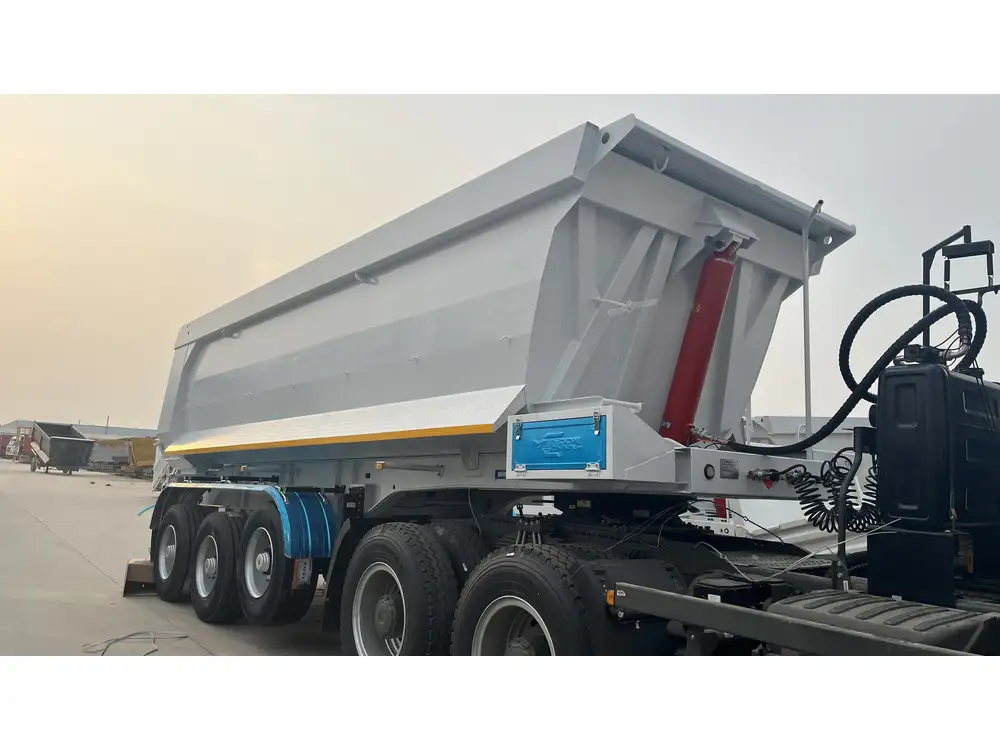
Types of Batteries Suitable for Dump Trailers
When it comes to selecting the appropriate battery for your dump trailer, a variety of options exist. Each has its distinct characteristics, strengths, and weaknesses.
1. Flooded Lead-Acid Batteries
Overview
Flooded lead-acid batteries are the most commonly used batteries across various applications, including dump trailers.
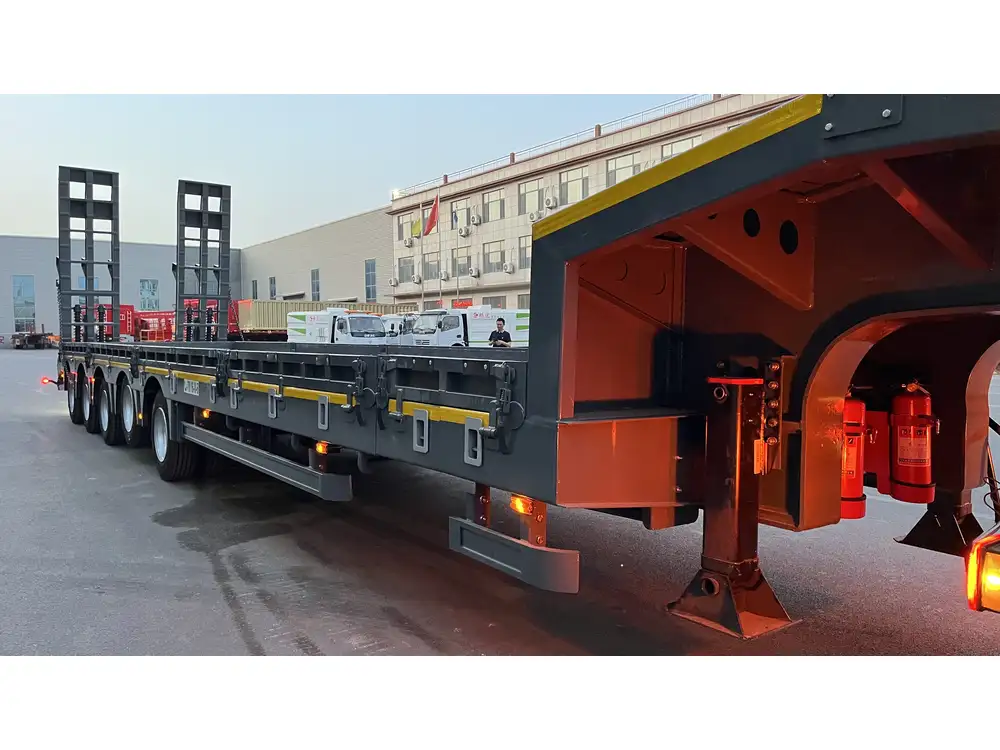
Pros:
- Cost-Effective: Generally less expensive compared to other battery types.
- Availability: Widely available in different sizes and capacities.
- Reparability: Can be repaired or rebuilt if damaged.
Cons:
- Maintenance Required: Regular maintenance is necessary to ensure longevity, including checking water levels.
- Weight: Heavier than other options, which can affect total trailer weight.
2. AGM (Absorbent Glass Mat) Batteries
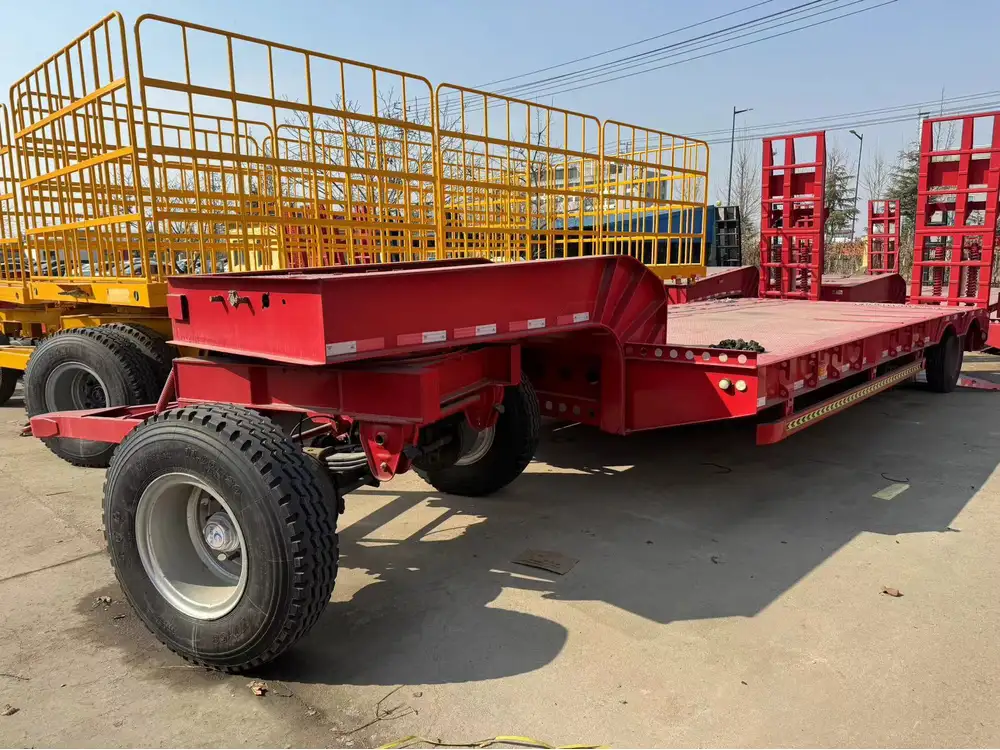
Overview
AGM batteries have advanced technology that offers good performance under challenging conditions.
Pros:
- Maintenance-Free: Sealed design means no electrolyte level checks are needed.
- Vibration Resilience: Better withstands vibrations, crucial during transport.
- Longer Lifespan: Generally last longer than flooded lead-acid options.
Cons:
- Higher Cost: More expensive compared to traditional lead-acid batteries.
- Sensitive to Overcharging: Needs proper charging equipment to avoid damage.

3. Gel Cell Batteries
Overview
Gel cell batteries use a silica gel to hold electrolyte in place, making them spill-proof and safe.
Pros:
- Safety: Less likely to leak and thus are safer in use.
- Deep Cycle Capabilities: Excellent for deep discharge applications.

Cons:
- Temperature Sensitive: Performance may drop dramatically under extreme temperatures.
- Less Common: Harder to find than other types.
4. Lithium-Ion Batteries
Overview
Lithium-ion batteries are becoming increasingly popular for various applications, including dump trailers.

Pros:
- Lightweight: Much lighter than lead-acid options, reducing overall trailer weight.
- High Energy Density: Provides more power for longer periods.
- Long Cycle Life: Typically lasts much longer than other batteries.
Cons:
- Expense: Initial investment is significantly higher.
- Requires Special Charging: Needs specialized chargers, adding to initial costs.
Factors to Consider When Choosing a Dump Trailer Battery
Choosing the right battery involves understanding specific requirements based on your dumping application. Here are crucial factors to deliberate:
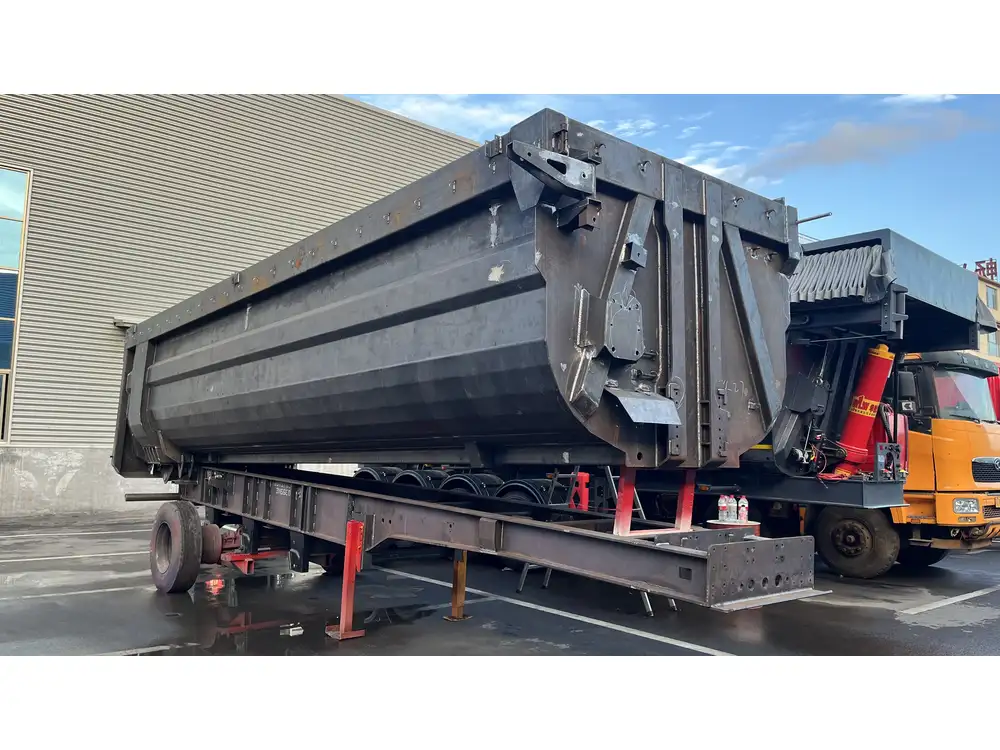
1. Amperage Needs
Understanding the amperage requirement of your dump trailer’s hydraulic lift system is vital. Ensure the battery can consistently provide the needed amps to lift the trailer without draining too quickly, thus maintaining operational reliability.
| Battery Type | Typical Capacity (Ah) | Usable Amp Draw (Amps) |
|---|---|---|
| Flooded Lead-Acid | 100-200 | 15-20 |
| AGM | 100-250 | 20-30 |
| Gel Cell | 100-200 | 15-25 |
| Lithium-Ion | 100-300 | 30-50 |
2. Voltage Compatibility
If your dump trailer utilizes a 12V system, ensure the battery matches this specification. Also, calculate the total voltage needed depending on how many batteries you plan to connect.
3. Charge/Discharge Cycle
For efficient operation, understanding charge cycles is vital. Consider how often the dump trailer will be used and how rapidly the battery discharges during this use.
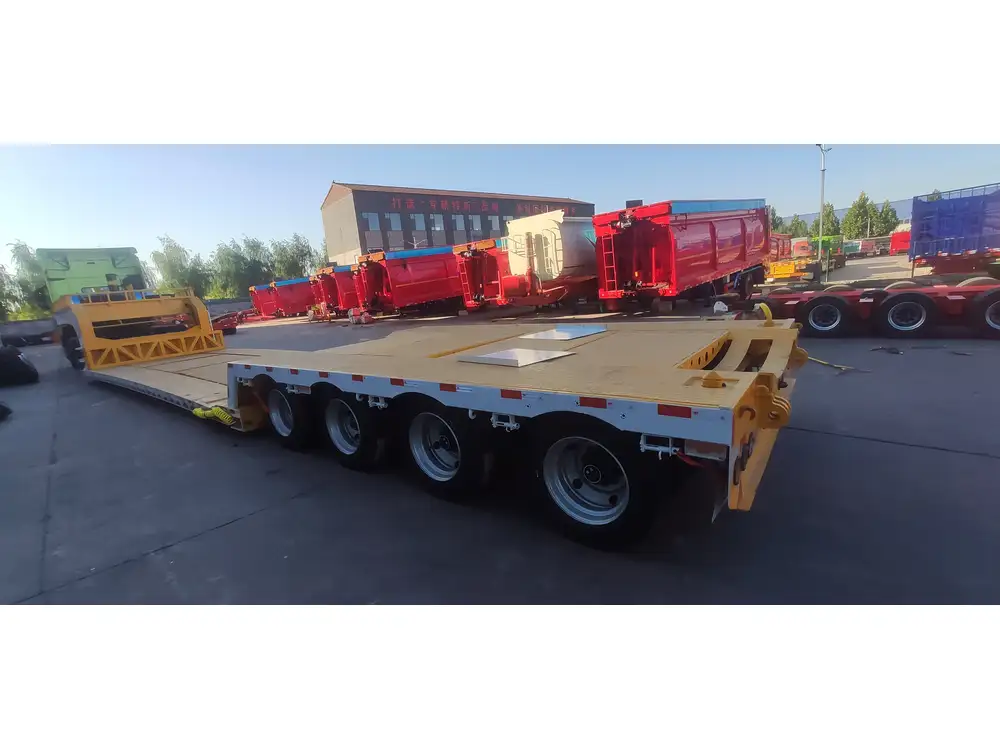
4. Size and Weight
The physical dimensions of the battery must fit within the allocated space of your dump trailer. Additionally, consider weight limits to ensure adherence to legal specifications and structural limits.
5. Climate Considerations
Weather conditions play a pivotal role in battery performance. Cold temperatures can reduce the battery’s effective capacity. If you operate in extreme conditions, opting for batteries that perform well in low temps, such as AGM or Lithium-Ion, would be beneficial.
Maintenance and Care for Your Dump Trailer Battery
Maintaining the battery in optimal condition extends its life and improves overall efficiency. Here are some best practices:

1. Regular Inspections
Check battery connections for corrosion and cleanliness at least monthly, especially in harsher environments.
2. Ensure Proper Chargings
Utilize chargers suitable for the battery type, and avoid overcharging, particularly with AGM and Lithium-Ion cells.
3. Temperature Management
Store batteries at room temperature when not in use, especially in winter months to avoid freezing.
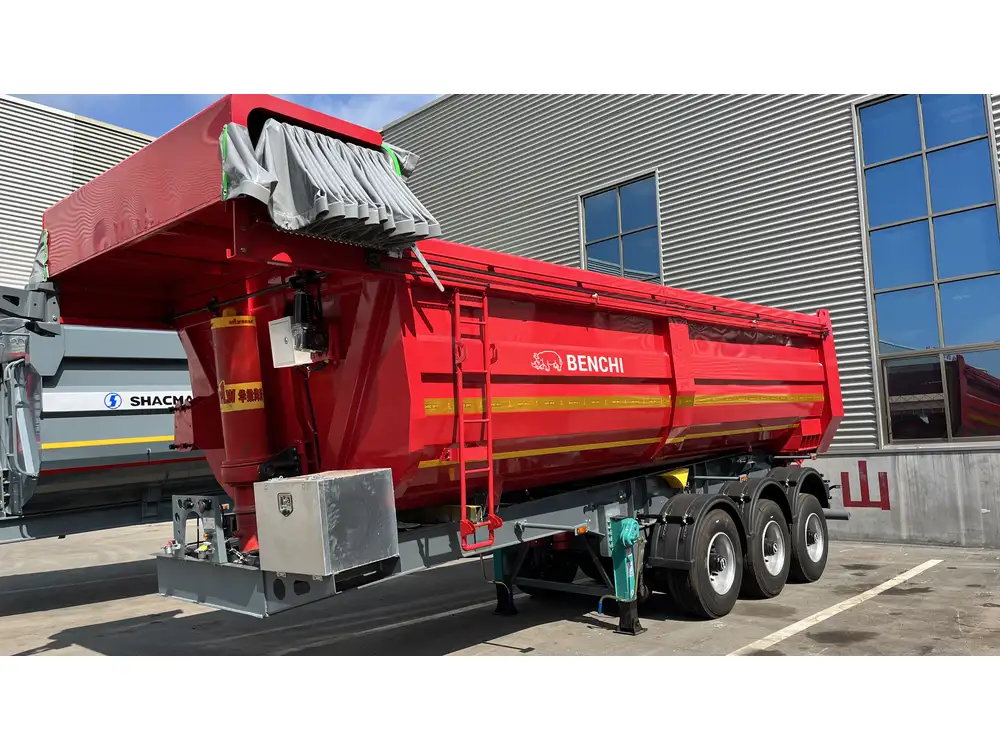
4. Follow Manufacturer Guidelines
Refer to the specific battery manufacturer’s guidelines for care and maintenance to optimize performance.
Troubleshooting Common Battery Issues
Recognizing potential problems early can save time and money. Here are common issues and their respective solutions:
Problem 1: Trailer Will Not Lift
Potential Cause: Insufficient battery power. Solution: Check battery charge and connections. If low, recharge or replace the battery.

Problem 2: Battery Draining Quickly
Potential Cause: A faulty electrical component or poor-quality battery. Solution: Test all electrical systems for faults. Consider upgrading to a high-quality battery.
Problem 3: Battery Not Holding Charge
Potential Cause: Battery nearing the end of its life. Solution: Test the battery with a multimeter. If below acceptable levels, replace the battery.
Conclusion
Selecting the right battery for your dump trailer is pivotal to ensuring its efficient operation and longevity. Understanding the various types, their advantages, and maintenance needs allows for a more informed decision. As we navigate the complexity of automotive technology, taking the time to choose wisely can foster a smoother, more productive hauling experience. It is incumbent upon every user to evaluate their specific needs against battery specifications to find the perfect match.
Adopting a well-informed approach not only upgrades your operational capacity but can also translate into significant savings in the long run. Whether you opt for traditional flooded lead-acid batteries or consider advanced lithium-ion options, understanding the nuances of battery performance will ultimately empower your hauling efficiency and enhance your investment in the dump trailer industry continuously.



